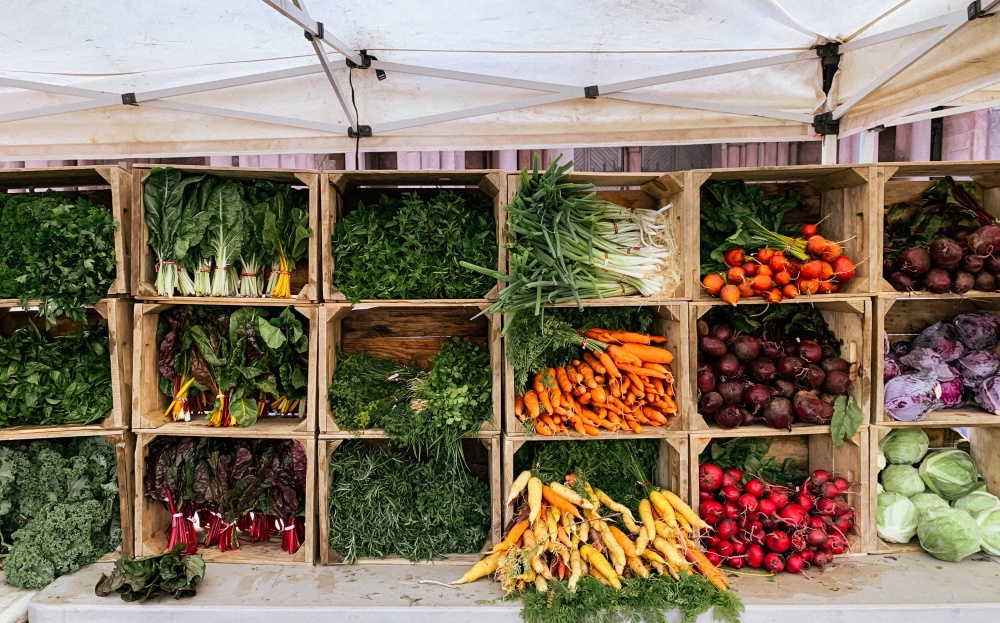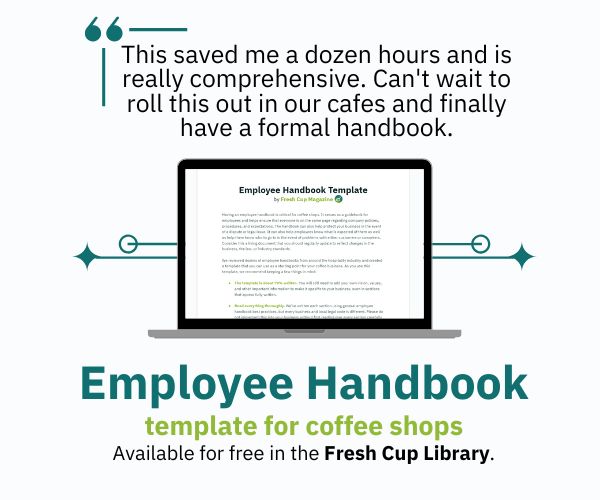[I]f you’re an emerging brand, farmers markets can be a great way to connect with your community and surrounding area, sell your products and build brand awareness. According to the 2019 National Farmers Market Managers survey, the United States has over 8,000 vendors that have found beyond the benefits of selling their products to the community.
Laura Scales, the founder of Athena Coffee Roasters in Nesbit, Miss., has been selling her coffee at farmer’s markets as soon as she could after starting her business in 2019. These offsite events have been foundational for her company. “I’m growing to five markets in two years in my local area and western Tennessee and have created a great community that has helped me grow my wholesale business.”
“When we first opened our bakery in 2014, participating in farmer’s markets was a big part of our marketing strategy,” says Jennifer Sheets, founder of Frothy Monkey in Nashville, Tenn. “Our cafes had been operating for 10 years at that point, but the bakery as a standalone was a new endeavor and farmer’s markets were a great way to connect with our community and get the word out.”
For many coffee and tea companies, market vending represents uncharted waters. However, there is more to selling at farmers markets than simply being present at the event and hoping for the best. Here are a few tips to help you succeed at your local farmer’s market.
Take a Tour and Take Notes
Scales advises businesses to visit the event beforehand or do extensive research before signing on for the season, including walking the market the season before. When she is considering a market, she looks at if this market attracts a lot of foot traffic and the average price point of the products that are sold there. “I look for if there is a diversity of the types of vendors and if that compliments what I would be selling,” says Scales. “I also like to see if bagels, bread, or other consumable goods complement what I’m doing.”
Make a Packing List, Check It Twice
Think through your process of setting up and taking down your booth. What are the tools you’ll need? The supplies? Bring back-ups of everything—extra tent stakes, tape, extension cords, etc. In addition, it’s easy to forget something during the rush of preparation, so make a checklist and add to it as you think of items that might come in handy.
There are also health and safety regulations dictated on the local and state level, so read up on those and pack accordingly. “In Tennessee, yes, I am very limited on where and what I can sell,” says Scales. “whereas when I’m in Mississippi, I have a lot more flexibility and adjust my setup to reflect that.”
Consider the Commitment
Farmer’s markets can be a significant financial investment for a business. In addition to start-up costs, including the vendor fee, gear, and inventory, you’llou also need to consider lost revenue from staff time away from your café or roastery during busy periods. “Most farmer’s markets require applications to get in, and if you do get a spot, you have to commit to all of the markets (usually weekly), so having dependable help staffing-wise is something to consider as well,” says Sheets. “I’ve definitely been stuck in a field in a lightning storm surrounded by rain-soaked loaves of sourdough before.”
Farmers markets typically run weekly or bi-weekly during peak months (May through October). So when you commit to a market, you’re committing for the duration of its season. Make sure this is something you can handle before signing up — especially if you’re running your business solo.
Beware of Inventory Impact
If your product flies off the table, it might fly right out of your inventory. This can be a problem for a small coffee and tea brand, which might not have enough stock to meet demand after a hectic day at the market. Of course, you can bring more than you would typically sell at a farmer’s market, but you’ll still run the risk of selling out quickly.
There’s also the challenge when working with perishable products or limited inventory, which can be channeling when preparing for events. The products we sold were all perishable,” says Sheets. “So figuring out PARS for what to bring while knowing that business volume or the market operations themselves will be influenced by things like the weather is difficult and risky.”
Keep Your Larger Strategy in Mind
Farmer’s markets are great, but they aren’t necessarily a viable alternative to opening up another brick and mortar location. Sheets shares that selling at farmer’s markets should be part of an overall business strategy that includes long-term goals. “It’s a lot of work but also a lot of fun! My biggest piece of advice is to be sure that a market strategy outside of a brick and mortar (or e-commerce) strategy is worth the effort,” says Sheets. “It should support your business, not distract from it.”
Farmers markets can provide a valuable experience from a learning and relationship-building perspective. But with so many options available, it’s important to approach each market cautiously and with a clear strategy. From there, you can develop a plan that will allow you to effectively grow your brand through farmers market experiences.















